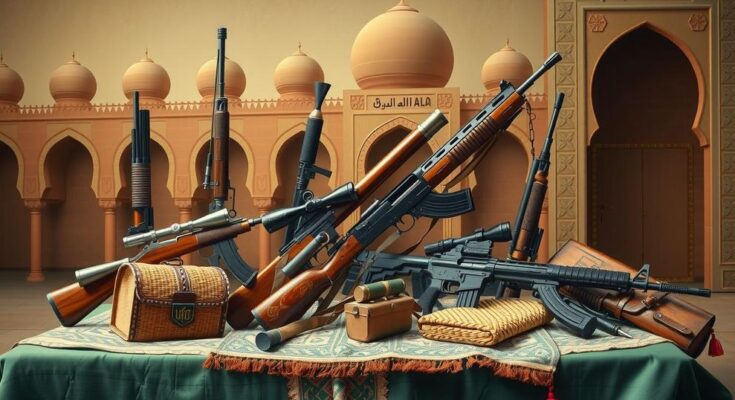Sudan has filed a case against the UAE at the ICJ, accusing it of genocide support in West Darfur. The case emphasizes the risks of arms transfers in conflict zones. South Africa’s substantial arms exports to the UAE raise ethical questions, especially amid allegations of human rights violations. The situation calls for a reevaluation of South Africa’s arms export policies to align with its stated commitment to international law.
The International Court of Justice (ICJ) is currently considering a case brought forth by Sudan against the United Arab Emirates (UAE) for alleged violations of the Genocide Convention. Sudan accuses the UAE of backing the Rapid Support Forces (RSF), known for committing atrocities in West Darfur. While political motivations may underpin this case, it underscores the potential risks associated with arms transfers, which may exacerbate conflict and human rights violations.
Sudan has requested the ICJ to enact provisional measures against the UAE due to claims that a genocide has been occurring in West Darfur since 2023. The allegations assert that the UAE supports the RSF, sending agents to lead the militia and providing substantial shipments of military equipment, including fighter drones. These claims, which coincide with findings from civil society organizations, face uncertainty as the ICJ must first establish its jurisdiction based on the UAE’s reservation to Article 9 of the Genocide Convention.
South Africa’s involvement is significant due to its arms exports to the UAE, which totaled approximately R88 million in 2023, comprising various military equipment. Concerns persist over the potential diversion of these arms to the RSF in Sudan. Although South African legislation mandates the completion of End-User Certificates (EUC) to prevent misuse, the enforcement of this system has been criticized as ineffective. Thus, the risk of South African weapons contributing to the conflict cannot be dismissed.
Historically, South Africa has faced scrutiny for its arms exports to nations with documented human rights violations. Recent legal cases, such as the one addressing arms sales to Myanmar, have reaffirmed that arms transfers implicated in international crimes should be halted or prohibited. Nonetheless, South Africa has not yet canceled permits for arms sales to the UAE despite serious allegations against it.
The escalating humanitarian crisis in Sudan poses ethical dilemmas for South Africa, especially amid its commitment to uphold international law. The country’s previous arms exports during the genocide in Myanmar and its decision to supply arms to the UAE, a state also accused of severe abuses in Yemen, reflects a troubling pattern. Such actions risk undermining South Africa’s credibility regarding human rights advocacy.
For South Africa to maintain its integrity on the international stage, it must realign its arms export policies to ensure they are consistent with its commitments to human rights. Adhering to international law requires rigorous self-scrutiny; prioritizing economic interests over humanitarian implications is not tenable.
The Sudanese case against the UAE at the ICJ highlights the complexities of international law concerning arms exports and human rights violations. South Africa’s arms sales to the UAE present significant ethical concerns, particularly given the ongoing allegations of genocide in Sudan. The need for South Africa to reassess its arms export practices is critical in order to uphold its commitments to human rights and international law, avoiding the perception of hypocrisy in its foreign policy actions.
Original Source: mg.co.za




